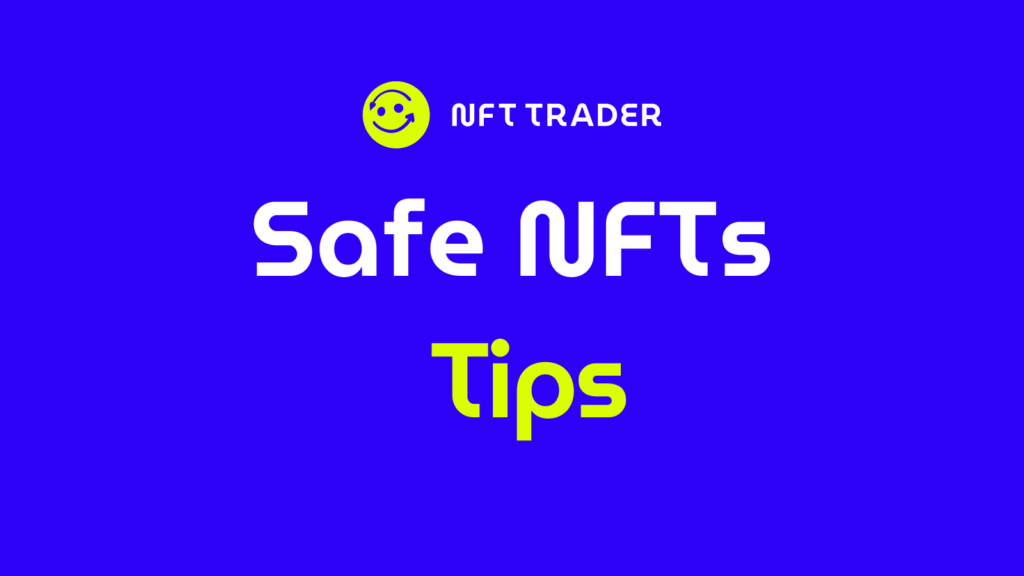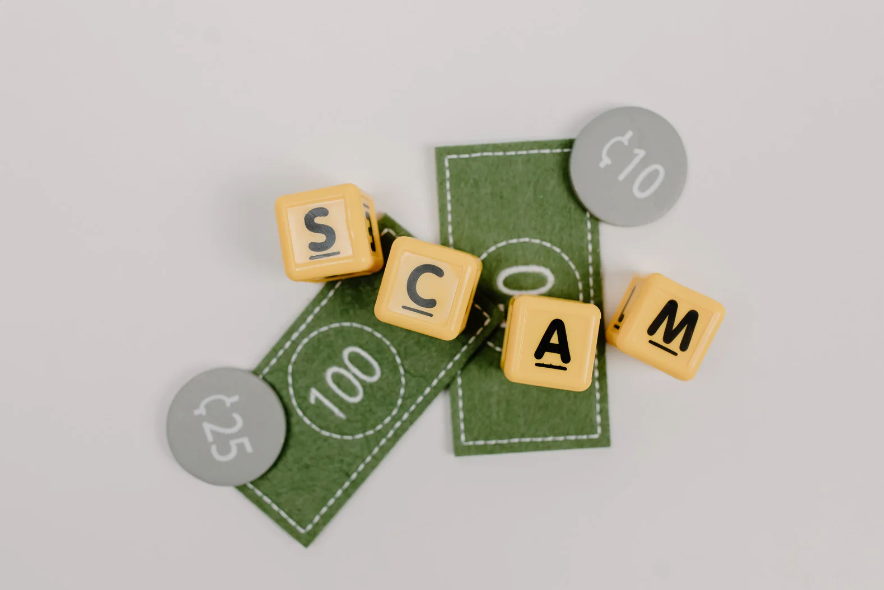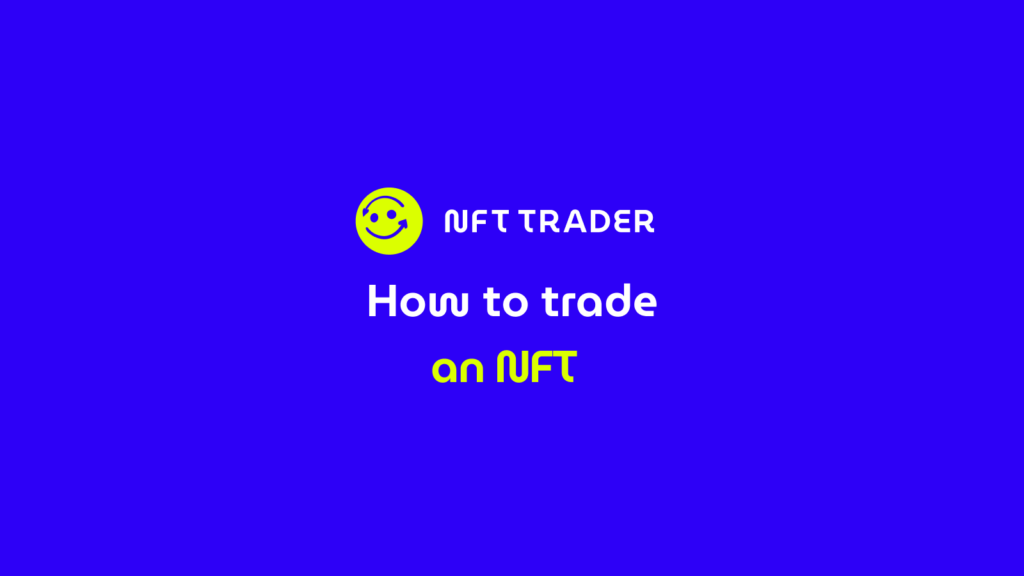Safe NFT trading tips: how to identify and avoid NFT scams

Summary:
Why are NFTs a Target for Scams?
NFTs (Non-Fungible Tokens) have introduced a transformative shift in the realm of art, creativity, and ownership. They offer artists and creators a positive avenue to directly reach a global audience and monetize their digital creations, eliminating the need for intermediaries like galleries or publishers. This empowerment grants creators greater control over their work and a larger share of the proceeds, fostering a more equitable ecosystem.
Moreover, NFTs bring a solution to a long-standing challenge in the digital age: establishing ownership and authenticity. Through the application of blockchain technology, NFTs provide an immutable and secure record of ownership. This innovation helps to combat issues like digital piracy and unauthorized duplication, which have plagued the digital art and content industry for years.
The concept of NFTs also opens up novel possibilities for collectors. Enthusiasts can now own exclusive, one-of-a-kind digital items, ranging from visual art and music to virtual real estate and even in-game items. This diversification of the collecting experience enriches the interaction between creators, collectors, and their digital creations.
However, the popularity and rapid adoption of NFTs have attracted the attention of scammers who seek to exploit the enthusiasm and curiosity surrounding this emerging technology. Scams involving NFTs can take various forms, such as the creation of fraudulent NFTs, artificially inflating prices through deceptive marketing tactics, or making grandiose but baseless claims about the future value of certain tokens.
To navigate this evolving landscape and reap the benefits of NFTs while minimizing exposure to potential scams, individuals must exercise caution and diligence. Thorough research into the artists, creators, and projects is essential before making any NFT purchases. Engaging with established and reputable NFT marketplaces provides an added layer of security. Being skeptical of offers that appear too good to be true and taking the time to educate oneself about the underlying technology can help individuals avoid falling victim to scams.
Furthermore, participating in online NFT communities and forums can provide valuable insights, foster connections with experienced collectors, and offer a platform to discuss concerns and share information. Employing secure cryptocurrency wallets and staying informed about best practices for digital security is vital to safeguarding one’s investments and NFT holdings.
In essence, NFTs hold immense potential for artists, creators, and collectors by reshaping the way digital content is valued, shared, and owned. While the allure of this innovative landscape is strong, remaining vigilant, informed, and discerning is key to navigating the NFT space safely and enjoying its benefits to the fullest.

Common Types of NFT Scams
Impersonation in the NFT Industry:
Impersonation has emerged as a concerning issue within the NFT industry, whereby malicious actors adopt the personas of established artists, creators, or influential figures to capitalize on their reputation and trustworthiness. These scammers create a facade of legitimacy by crafting fake profiles on various online platforms, including social media and websites, that closely resemble the appearance and communication style of the genuine individuals they impersonate.
Once these fake profiles are established, scammers engage with followers, posting content and updates that mirror the artistic style, communication patterns, and thematic elements commonly associated with the real artists or creators. This calculated mimicry aims to build a sense of familiarity and credibility among the unsuspecting audience.
The pivotal moment in this scheme comes when scammers claim to offer exclusive NFTs purportedly linked to the work of the impersonated artist. These NFTs often come with enticing price points and promises of exclusivity, targeting buyers who are seeking unique and valuable digital assets. Unfortunately, these unsuspecting buyers later discover that the NFTs they purchased hold no tangible value, as they are either counterfeit or entirely non-existent.
Fake Marketplaces in the NFT Industry:
Fake marketplaces have emerged as another significant threat in the NFT industry, preying on individuals’ growing interest and enthusiasm for digital collectibles. These counterfeit platforms are meticulously designed to mimic the appearance, functionality, and features of legitimate NFT marketplaces, leading users to believe they are engaging with trusted sources.
Scammers operating these fake marketplaces use a multi-faceted approach to deceive users. They create websites that closely replicate the design and user interface of well-known NFT platforms, using this visual similarity to instill a false sense of trust. To further lure users in, they dangle attractive offers such as exclusive NFT deals, minimal transaction fees, or purportedly unique opportunities that set them apart from legitimate platforms.
Users who fall into this trap create accounts on these fake platforms and deposit funds into associated wallets, believing they are partaking in legitimate NFT transactions. However, once funds are deposited, scammers seize control over both the funds and the user’s wallet. Transactions may appear authentic, but victims ultimately find that the NFTs they’ve purchased are never delivered, leaving them with empty wallets and dashed expectations.
In conclusion, both impersonation and fake marketplaces pose substantial risks within the NFT industry. Impersonation preys on the reputation of established artists and creators, exploiting their trust to sell worthless NFTs. Fake marketplaces capitalize on users’ desire to explore NFTs by mimicking legitimate platforms and duping users into investing their funds with no return. Staying vigilant, conducting thorough research, and engaging exclusively with reputable platforms are critical steps to safeguard against these scams and ensure a secure and positive experience in the dynamic world of NFTs.
Rug Pulls:
“Rug pull” is a term commonly used in the cryptocurrency and NFT (Non-Fungible Token) space to describe a deceptive practice where individuals or groups deliberately create and promote a project, such as an NFT collection or a token, with the intent of attracting investors or buyers and then suddenly disappearing with their funds. In essence, a rug pull is a form of exit scam, where the creators of the project orchestrate a sudden and often unexpected disappearance after amassing a significant amount of investment.
Rug pulls involve a sequence of actions by scammers: They start by launching a project like an NFT collection or a new token, often enticing investors with promises of high returns, unique benefits, or exclusive perks for early participation. Employing aggressive marketing, social media campaigns, and other promotional tactics, they create a sense of urgency and FOMO (Fear of Missing Out) among potential investors. Capitalizing on this hype, investors pour funds into the project by purchasing associated tokens or NFTs. Once a substantial amount of funds accumulates, the scammers execute the rug pull, abruptly severing communication, shutting down websites and social media accounts, and disappearing with the collected funds. Consequently, investors are left with worthless tokens or NFTs, unable to recover their losses due to the scammers’ sudden and elusive departure, which complicates tracking or accountability.
Pump & Dump Schemes:
Pump and dump schemes are deceptive tactics prevalent in the financial and cryptocurrency markets, including the NFT space. These schemes involve artificially inflating the price of a particular asset, such as a token or NFT, through coordinated and often manipulative efforts, creating a surge in demand. Once the price reaches a desired level, the orchestrators swiftly “dump” their holdings, selling at the inflated price, causing the asset’s value to plummet. This leaves unsuspecting investors with losses, while the schemers profit from their orchestrated manipulation.
In essence, pump and dump schemes exploit investor sentiment and create artificial market movements, often leading to substantial losses for unsuspecting participants. Remaining cautious, conducting due diligence, and relying on reliable information sources are key to avoiding falling victim to these manipulative tactics.
Phishing Scams:
Phishing scams, a pervasive form of cybercrime, have extended their reach into the NFT (Non-Fungible Token) space, targeting users eager to engage in NFT activities. Scammers impersonate legitimate NFT platforms or artists through fake websites, emails, or social media profiles, using deceptive tactics to trick users into divulging sensitive information like login credentials and financial details. These scams involve creating convincing replicas of official platforms, sending urgent messages or emails that pressure recipients into taking action, and directing victims to counterfeit login pages via links. Once users provide their information, scammers steal it and gain unauthorized access to accounts, funds, and personal data. Recognizing red flags such as mismatched URLs, unsolicited requests for information, or poor language quality, and adopting protective measures like verifying URLs, directly contacting sources for confirmation, avoiding unsolicited links, securing accounts, and staying informed about phishing tactics are key to safeguarding against phishing scams and ensuring a secure experience in the NFT landscape.
Customer Support Scams:
Deceptive customer support scams have infiltrated the NFT (Non-Fungible Token) sector, targeting users seeking help with NFT-related matters. Scammers create fake customer support profiles, resembling legitimate ones from NFT platforms, to exploit users’ trust. Responding to users’ inquiries, they request sensitive information like login credentials or private keys under the pretense of resolving issues. Victims unknowingly share their data, leading to compromised accounts, fund theft, and identity threats. Recognizing warning signs like unsolicited contact, urgency, requests for sensitive data, and poor language quality, coupled with using official channels and not sharing sensitive information, are crucial measures to safeguard against customer support scams in the NFT industry.
Bidding Scams:
Bidding scams are deceptive practices within the NFT (Non-Fungible Token) realm, targeting auction participants. Scammers fabricate bids or collaborate with others to artificially inflate bidding prices during NFT auctions, creating a perception of high demand. This prompts genuine bidders to raise their bids in response to the competitive atmosphere. Once unsuspecting participants have overextended their bids, scammers withdraw their fake bids, causing legitimate bidders to win at inflated prices. Victims of these scams end up paying more than an NFT’s actual value due to manipulated bidding dynamics, resulting in financial losses. To safeguard against bidding scams, individuals should research bidders’ histories, set budget limits, remain cautious of fear of missing out (FOMO), and verify bid withdrawals for legitimacy.
Counterfeit NFTs:
Counterfeit NFTs represent a concerning issue in the NFT (Non-Fungible Token) industry, where scammers create fake digital collectibles that mimic the appearance and attributes of genuine NFTs. These fraudulent items are often sold at lower prices or marketed as exclusive deals, targeting buyers seeking valuable digital assets. Counterfeit NFTs can encompass various forms, including digital artworks, virtual items, and even entire collections. By exploiting the demand for NFTs, scammers deceive unsuspecting buyers into purchasing items that hold no actual value or legitimacy. This undermines the trust and integrity of the NFT ecosystem while causing financial losses for those who unknowingly invest in counterfeit items. To protect against counterfeit NFTs, individuals should conduct thorough research on the legitimacy of the NFT, verify the artist’s or creator’s identity, and use reputable NFT marketplaces that offer authentication mechanisms to ensure the authenticity of digital assets.
NFT Giveaway or Airdrop Scams:
NFT giveaway or airdrop scams are deceptive tactics commonly observed in the NFT (Non-Fungible Token) landscape, targeting individuals’ desire for free digital assets. Scammers impersonate well-known artists, creators, or reputable NFT projects, claiming to offer free NFTs through giveaways or airdrops. These scams are often promoted through social media platforms, emails, or websites, urging users to participate by providing personal information, sharing wallet addresses, or sending a small amount of cryptocurrency as a verification fee. However, once users comply, scammers vanish with the provided information or funds. To safeguard against NFT giveaway or airdrop scams, individuals should exercise caution, verify the legitimacy of the promotion through official sources, avoid sharing sensitive information, and be skeptical of requests for upfront payments or fees.
Investor Scams:
Investor scams in the NFT (Non-Fungible Token) industry encompass a range of fraudulent activities designed to deceive individuals seeking to invest in NFTs for potential profits. Scammers exploit the growing interest in NFTs by creating schemes that promise high returns, exclusive opportunities, or insider information. These scams can take various forms, such as fake investment funds, pump and dump schemes, and pyramid structures. Scammers often employ aggressive marketing tactics, leveraging social media, online forums, and enticing websites to lure in unsuspecting investors. As victims invest funds, scammers either disappear with the money or manipulate market prices to benefit themselves, causing significant financial losses for those who believed in the false promises. To protect against investor scams, individuals should exercise caution, thoroughly research investment opportunities, use reputable platforms, avoid deals that seem too good to be true, and seek advice from trusted financial professionals before committing funds to any NFT investment venture.

Tips to Avoid NFT Scams:
- Verifying the Creator or Seller: Verifying the authenticity of the creator or seller is a crucial step in avoiding NFT scams within the NFT (Non-Fungible Token) ecosystem. To safeguard your investments and ensure you’re engaging with legitimate digital assets, consider the following strategies:
- Research the Creator: Before purchasing an NFT, conduct thorough research on the artist or creator. Look for their presence on reputable social media platforms, official websites, and art communities. Verify their history, past works, and contributions to the NFT space. Authentic creators often have a consistent online presence and are associated with established platforms.
- Cross-Check Information: Cross-reference the creator’s information from multiple sources. Verify their identity through official statements, interviews, or posts on their verified social media profiles. Be cautious if the information is inconsistent or difficult to verify.
- Use Trusted Marketplaces: Prefer using well-known and reputable NFT marketplaces for transactions. Established platforms often have mechanisms to verify artists and creators before allowing them to list their NFTs. These platforms also provide a level of protection against fraudulent activities.
- Beware of Anonymous Sellers: Exercise caution when dealing with sellers or creators who remain anonymous or provide minimal information about themselves. Lack of transparency is a red flag that could indicate potential fraud.
- Check Community Engagement: Genuine creators often engage with their audience and respond to questions and comments. Look for interactions between the creator and their followers to gauge their authenticity.
- Reverse Image Search: If you’re unsure about the origin of a digital artwork, you can perform a reverse image search to see if the same image appears elsewhere on the internet. This can help verify if the artwork is genuinely unique.
- Seek Expert Opinions: If you’re uncertain about the legitimacy of an NFT or the creator, seek opinions from trusted experts or members of the NFT community who have experience in the field.
- Be Skeptical of Too-Good-To-Be-True Offers: Scammers often entice buyers with unrealistically attractive offers. If a deal seems too good to be true, take a step back and carefully evaluate the legitimacy of the opportunity.
- Check for Official Partnerships: Some NFT projects involve collaborations with known entities, brands, or celebrities. Verify the authenticity of such partnerships through official statements and reputable news sources.
In essence, verifying the creator or seller is a crucial aspect of avoiding NFT scams. By conducting thorough research, using trusted platforms, and seeking reliable sources of information, you can mitigate the risk of falling victim to fraudulent activities and enjoy a secure and positive experience in the NFT industry.
Recognizing Fake Websites & Marketplaces
Distinguishing between genuine and fake websites or marketplaces is essential in navigating the NFT (Non-Fungible Token) landscape safely. Scammers frequently create counterfeit platforms to deceive users into sharing sensitive information or making fraudulent purchases. To protect yourself from such scams, follow these guidelines:
- Check the URL: Examine the website’s URL closely. Scammers may use slightly altered domain names or misspelled versions of legitimate platforms to trick users. Verify that the domain matches the official NFT marketplace or platform.
- Look for HTTPS: Legitimate websites use secure connections with HTTPS encryption. Ensure the website’s URL begins with “https://” and displays a padlock icon in the browser’s address bar.
- Review the Design: Pay attention to the website’s design and layout. Fake platforms often replicate the appearance of legitimate ones, but minor inconsistencies or poor design quality may indicate a scam.
- Search for Contact Information: Authentic NFT marketplaces provide clear contact information, including email addresses and customer support details. If these details are missing or difficult to find, the website could be fraudulent.
- Check for Social Proof: Look for user reviews, testimonials, or discussions about the platform on reputable forums or social media channels. The absence of genuine social proof might indicate a scam.
- Verify Social Media Links: Confirm the validity of social media links displayed on the website by cross-referencing them with official social media accounts of the platform.
- Scrutinize Offers: Be cautious of websites offering unrealistic deals, such as unbelievably low prices for valuable NFTs. If it sounds too good to be true, it probably is.
- Avoid Unsolicited Links: Don’t click on links provided in unsolicited emails, messages, or advertisements. Scammers often use these tactics to direct users to fake websites.
- Use Trusted Sources: Access NFT platforms and marketplaces through trusted sources, such as official mobile apps or bookmarks you’ve saved.
- Double-Check Transactions: If you’re redirected to a different payment page or prompted to enter sensitive information, reconsider the authenticity of the website.
- Seek Verified Badges: Some platforms offer verified badges to authenticate creators and sellers. Check if the website has such badges and verify their authenticity.
- Trust Your Instincts: If something feels off or suspicious about a website or marketplace, trust your instincts and proceed with caution.
In conclusion, recognizing fake websites and marketplaces in the NFT industry is crucial to avoiding scams. By staying vigilant, verifying URLs, checking for secure connections, reviewing design details, and using trusted sources, you can minimize the risk of falling victim to fraudulent platforms and enjoy a secure experience in the NFT space.
Safeguarding Personal Information and Wallet Keys
Protecting your personal information and wallet keys is paramount in ensuring the security of your NFT (Non-Fungible Token) assets within the industry. Scammers often target individuals to gain unauthorized access to wallets and accounts, potentially resulting in financial loss or identity theft. To safeguard your information and assets, consider these essential practices:
- Use Strong Passwords: Create complex passwords that include a combination of uppercase and lowercase letters, numbers, and symbols. Avoid using easily guessable information like birthdays or common words.
- Enable Two-Factor Authentication (2FA): Utilize 2FA for your NFT platforms and wallets. This additional layer of security requires a verification code in addition to your password, significantly reducing the risk of unauthorized access. It’s better use an app like Authenticator instead use the 2FA with SMS.
- Beware of Phishing: Be cautious of unsolicited emails, messages, or links asking for your personal information or wallet keys. Avoid clicking on suspicious links and only provide sensitive data through official and secure channels.
- Secure Your Devices: Ensure your devices have updated security software and operating systems. Use strong PINs or biometric locks to prevent unauthorized access to your devices.
- Use Hardware Wallets: Consider using hardware wallets for storing your NFT wallet keys offline. These devices provide an extra layer of protection against online threats.
- Keep Wallet Keys Offline: Avoid storing your wallet keys on cloud storage, email accounts, or digital notes. Instead, keep them in a secure physical location, like a safe or encrypted USB drive.
- Regularly Backup Keys: Regularly back up your wallet keys and NFT assets. This ensures that even if a device is lost or compromised, you can still access your holdings.
- Use Encrypted Connections: When accessing your NFT accounts or wallets online, ensure you’re using secure and encrypted connections (HTTPS) to prevent data interception.
- Educate Yourself: Stay informed about common scams and tactics used by cybercriminals. Knowledge is your best defense against potential threats.
- Be Cautious in Public Networks: Avoid accessing your NFT accounts or providing wallet keys while connected to public Wi-Fi networks, as they may be less secure and prone to hacking.
- Limit Sharing of Wallet Information: Only share your wallet keys with trusted individuals and never disclose sensitive information in public forums or chats.
- Regularly Monitor Accounts: Frequently review your NFT accounts and transactions for any unauthorized activity. Promptly address any suspicious behavior.
In conclusion, safeguarding your personal information and wallet keys is essential to ensuring the security of your NFT assets in the industry. By adopting strong security practices, using two-factor authentication, being cautious of phishing attempts, and staying informed about potential threats, you can minimize risks and enjoy a secure and positive experience within the NFT ecosystem.
Notable Examples of NFT Scams
Evolved Apes:
Evolved Apes is an example of a project that gained attention for its eye-catching NFT collection. However, it later turned out to be a scam. After attracting investments and selling NFTs, the project’s creators disappeared, leaving investors with worthless tokens and financial losses.
CryptoKitties Copycats:
CryptoKitties, one of the earliest and most popular NFT projects, spawned several copycat projects that promised similar collectible experiences. However, some turned out to be scams, with creators disappearing after selling NFTs or using deceptive marketing tactics.
Rarible Minting Bug:
Rarible, a well-known NFT platform, experienced a minting bug that allowed scammers to create fake NFTs and list them for sale. Unsuspecting buyers purchased these counterfeit NFTs before the bug was identified and rectified.
Meebits Impersonation:
Scammers impersonated the creators of the Meebits project, a successful NFT collection, by creating fake social media accounts and websites. They offered supposed exclusive pre-sales to deceive users into sending funds, only for the scammers to disappear with the money.
Bored Ape Yacht Club Copycat:
The Bored Ape Yacht Club, a highly esteemed NFT collection, was imitated by scammers who created a fake version of the project. They marketed it as a legitimate offering, leading buyers to invest in the fake NFTs.
ArtBlocks Exploitation:
ArtBlocks, a platform for generative art NFTs, saw scammers exploiting the demand for unique artworks. Some copied existing generative art projects, rebranded them, and sold them as their own, defrauding both artists and buyers.
Celebrity Impersonations:
Scammers have impersonated celebrities and artists on social media, claiming to offer limited-edition NFTs or exclusive collaborations. Users who fall for these impersonations often end up sending funds to scammers instead of the real artists or celebrities.
Token Sale Scams:
Scammers have launched fake initial token sales (ICOs) for NFT projects, soliciting investments in exchange for tokens that hold no value. After collecting funds, the scammers disappear, leaving investors with worthless tokens.
Fractal:
Fractal is another instance where scammers promoted an NFT collection with the promise of high returns and exclusive benefits. Once the project gained momentum and investors poured funds into it, the scammers executed a rug pull, vanishing with the collected funds and leaving investors with significant losses.
Frosties:
Frosties is a case of a fraudulent NFT project that lured in users with the allure of quick profits and rare digital items. As investors eagerly participated in the project, the scammers conducted a rug pull, causing the token’s value to plummet and causing substantial financial harm to investors.
Save The Kids Token:
The Save The Kids Token project claimed to be a charity-focused initiative, promising a portion of proceeds to be donated to charitable causes. However, it was revealed that the creators had secretly allocated a significant portion of funds for personal gains. This example highlights the importance of thorough research and skepticism, even in projects with seemingly noble intentions.
MoonCats Clone:
A clone of the popular MoonCats project emerged, where scammers attempted to sell digital cats resembling the original MoonCats NFTs. These counterfeit NFTs were marketed as legitimate, exploiting the popularity of the original project to deceive buyers into purchasing fake items.
These examples underscore the diversity of NFT scams, ranging from elaborate projects promising high returns to clones and counterfeits designed to mimic legitimate NFT collections. To safeguard against such scams, individuals should conduct thorough research, use reputable platforms, verify creators’ identities, and exercise caution when encountering offers that seem too good to be true.



